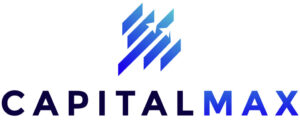
Are you looking for affordable commercial business loans? If you’re a new business owner trying to get a commercial loan, you should be aware of the different options available for your business. Don’t settle for any credit option without a complete understanding of what it offers, including its pros and cons. This article gives a clear insight into the five common but important types of commercial loans you should consider for your business based on your venture’s model and type.
What are the 5 Best Commercial Loans for Businesses?
Among numerous loan options, below are some of the most important to consider:
- SBA Loans
- Business Lines of Credit
- Term Loans
- Hard Money Loans
- Your Lender’s Recommendation
1. SBA Loans
SBA loans are one of the most sought-after financing options for small businesses in the United States. They offer low-interest rates with flexible repayment terms. Depending on the purpose of your SBA loan, you can either use the 7(a) or 504 loan.
The SBA 7(a) is a good option if you want to expand your existing business by up to $5 million. On the other hand, the 504 helps companies purchase fixed assets like commercial real estate or equipment.
Even though SBA loans have a good repayment structure, the requirements lenders request can be extensive. For instance, some lenders may require a credit score as high as 680 to qualify, and the process could take weeks or months.
2. Business Lines of Credit
A business line of credit lets the business owner borrow money on an as-needed basis, allowing interest payment only on what they borrow. This loan system functions like a credit card where the issuing bank approves a limit, and as you use and repay, you get access to the credit line all over again during the draw period.
In most cases, the draw period is between 12 to 24 months, and once that time elapses, the business owner can’t access the credit line anymore. Once the draw period ends, the repayment period begins and usually lasts up to five years.
Business lines of credit are a great option if you’re a business owner with good credit or collateral that needs a short-term loan.
You may also consider getting a business line of credit if you want to benefit from one or more of the following:
- Hiring new employees to meet a growing demand for your services.
- Running new marketing campaigns.
- Opening a new office or expanding into a new physical location.
- Covering payroll
Secured Business Line of Credit vs. Unsecured Business Line of Credit
When getting a secured business line of credit, you need to pledge your assets against the loan as collateral. Since it’s a temporal liability, lenders may settle for inventory or accounts receivable as collateral.
Unlike the secured business line of credit, the unsecured doesn’t require any assets as collateral. However, there are typically a lot more requirements to meet, like good personal and business credit and a track record of generating revenue.
3. Term Loans
Small businesses can get term loans from a traditional bank, credit union, or an online lender. Once you receive this loan, you can repay it over a fixed period for a specified interest rate.
Conditions for term loans vary, typically based on how qualified you are for the loan. Most well-qualified businesses have access to the following:
- Getting up to $500,000 or more.
- Receiving repayment terms of up to 10 years.
- Securing an APR starting at 9%.
- Using the funds for working capital, inventory, equipment, and many more.
If you have a good personal and business score, you have better chances of getting a competitive interest rate on a term loan, especially from a typical lender. These loans also have a faster application and funding process compared to most commercial loans.
4. Hard Money Loan
Hard money loans are good for financing unoccupied buildings or properties that need improvement or renovation. These commercial business loans are typically backed by equity, so personal finances aren’t much of a concern when applying. Even if you have a low credit score, you can still get these loans from a hard money lender.
If you’re planning to get a commercial real estate property where you share the space and generate rental income, hard money loans are a go-to option. Most hard money lenders close faster than conventional banks but require a significant amount for a down payment.
5. Your Lender’s Recommendation
Before selecting a type of commercial loan you believe fits into your business model, contact your lender. By contacting your lender, you get to discuss your business model and financial circumstances to get the best recommendation.
Speaking to your lender will also help you get first-hand information regarding the terms and conditions surrounding your loan. For instance, Capital Max gives potential borrowers information about interest rates, fees, repayment schedules, and other terms and conditions.
Why You Should Get a Commercial Business Loan
If your business needs financing, a commercial business loan may be one of the best options available. Most of these credit offers come with low-interest rates, giving you access to critical funding while keeping a low overhead cost.
Below are other reasons you should consider a commercial business loan:
To Start a Venture
A report published on Forbes shows only 34% of small businesses applied for a loan in 2021, showing a significant gap in the business financing industry. Prospective business owners may need to apply for credit more often to increase their chances of success.
Before applying for a loan to start your business, you want to make sure you’ve done your research. Start by creating a business plan that highlights all of your business objectives, needs, and financial projections.
Once you have your business plan sorted, put together a good team and start small by setting realistic goals. Look out for lenders and a loan with requirements that match the state and nature of your business. Most lenders like Capital Max will provide insight and tailored advice before you make a final decision.
Purchasing Equipment and Inventory
Business owners need financing for inventory purchases to get access to larger product volumes or to avoid last-minute increases in shipping costs.
When it comes to inventory financing, your lender analyzes your needs based on a list of factors. These factors include loss provisions, perishability, resale value, and theft.
Another common factor lenders consider before inventory financing is depreciation. Depending on the product type, inventory tends to depreciate with time. This reality makes a lot of lenders give inventory loans at very high-interest rates.
Funding a Marketing Campaign
An effective marketing campaign helps any business expand its reach and connect with a broader target audience. Investing your business loan into marketing efforts across various channels can improve brand awareness, which builds loyal customers, leading to improved sales and revenue.
Good campaigns also help businesses stay ahead of competitors by showcasing unique selling points and the benefits of products or services. So, using your business loan appropriately can help drive the best results in marketing revenue.
Business Expansion
One of the most common reasons business owners request a loan is to scale their business. As a business owner, you still need to understand the different common types of business loans before choosing one you believe fits your expansion needs.
Here’s a list of some of the most common ways business owners use loans for expansion:
- Buying an existing business in or outside your industry.
- Hiring new staff.
- Expanding into a new location.
- Expanding a product line or developing new products.
- Remodeling or purchasing commercial real estate.
Unexpected Expenses
One thing is certain: when running a small business, unexpected expenses will come up. For this reason, it’s important for business owners always to strive to maintain a positive cash flow by preparing for these expenses.
Some of the common business expenses that come up are:
- Equipment repairs and replacement
- Sudden change in supply cost
- Increase in employee expenses (e.g., background checks, benefits, additional equipment, etc.)
- Need for office space maintenance or upgrades
Finding the Right Type of Commercial Loan for Your Business
Below is a list of factors that could help you know the best type of commercial loan to consider for your venture:
- What are the terms of the loan? (In most cases, you can know the exact terms of the loan by speaking to your lender.)
- How good is your credit score? (Most times, borrowers with a credit score of 620 have better chances (except for hard money loans))
- What’s your business model? (Most small businesses go for SBA loans since they offer flexible repayment terms and interest rates for their business types.)
Get a Commercial Business Loan with Capital Max
If you’re confused about the best commercial loan that fits your business model or you’ve hit a roadblock with conventional lenders, Capital Max is here to help. At Capital Max, we secure tailored commercial loans for entrepreneurs and investors. As a hard money lender, our extensive network and expertise in alternative financing can help you access the capital you need to fuel growth and capitalize on lucrative opportunities.
